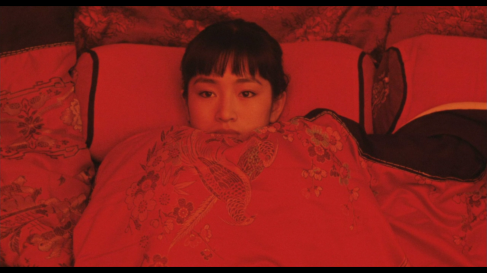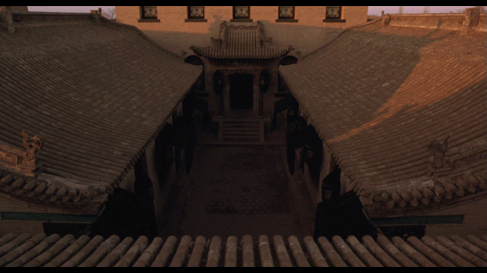-Rich man? If you marry a rich man, you will only be his concubine.
-Let me be a concubine then. Isn’t that the fate of every woman?
Since the international emergence of Asian cinema in countries such as Japan, China and India, the role of eastern filmmaking has been fiercely debated among critics and spectators, and one of the main points for discussion remains to be the matter of universality. This happened to many of the most distinct Asian directors, sporadically accused of ‘westernizing’ their films in order to achieve broader recognition and box-office results – Rashomon, Seven Samurai, Slumdog Millionaire, and many others are recognizable examples. In China, Zhang Yimou, one of the most recognizable Asian directors of the last few decades whose films have swept awards in Hollywood, Venice, Cannes, Berlin, Moscow and many other major film cities, is one the most important modern examples of such issue. Indeed, his films are very well accepted by western critics and audiences, but amid such a convoluted debate, questioning the following is inevitable: how do movies like Raise the Red Lantern contribute to local and international audiences, and how does a movie achieve both universality and public acceptance?
Perhaps the way the story is shown to us leads to that. Not only the film is piercing about its themes of sexual enslavement and obedience, it can be seen as a silent allegory to government ruling and authoritarianism. Yimou clearly denies it, but I believe there’s the possibility that his denial relates to the fear of censorship, which nevertheless affected the film for a short period. The story of decline from the center of all attention to disgrace and madness, as seen through the eyes of Songlian (Gong Li in a breakthrough performance), is both silent and aggressive, and in the way it’s calmly orchestrated by Yimou’s direction, it stands out as one of the most charming Chinese films. It was accused of historical and cultural inaccuracies; I can guess too little on those matters and think the film transcends such issues.
Songlian, in a haunting opening shot, reveals to her mother, who doesn’t appear on screen, that she has no choice but to marry a man in order to reach for support her deceased father can’t give anymore. A former college student, she walks to her new husband’s house and becomes the Fourth Mistress. She has a maid, several nights with Master Chen (Ma Jingwu), a huge room for herself and, whenever possible, the food she wants; internally and socially, however, the mood is tense, as all the first three wives conflict with one another and trick one another to receive the most attention. Songlian’s duties are just like everyone else’s but her wishes thus depend on stubbornness and deceit against her female acquaintances. There are no villains in the story, but the newcomer is the main character and is the one whom the film focus on, which leads us to sympathize with a character that’s ironically just as human as the other three. The enemy of the story is never directly shown on the screen, but guesses are easy to make.
Zhang Yimou is famous for his visual storytelling, and in Raise the Red Lantern, he uses it in full potential. The most important ingredient of the film’s visual component is the calculated framing, which never shows the main character outdoors, with the exception of the palaces’ roofs, confined in the castle’s boundaries. Several times, shots of the palaces and the main patios fill the screen, and the feeling of imprisonment is unavoidable. What’s most interesting in the film, however, is the intense use of colors, in almost abusive shades of red, blue, yellow and white, complemented by the wives’ gorgeous rooms and surroundings. Lanterns, masks and clothing are all essential to the film’s charm and luxury, and the result is dazzling.
This movie has been interpreted several times as both a feminist picture and a model of the framework behind authoritarianism, and indeed it’s hard to make distinctions between these perspectives or to remain on one side of the discussion. The customs that force the four women to fight against one another are hardly disrespected, and yet it’s clear that there’s a silent opposition to the oppression that comes from their faceless master. Raise the Red Lantern is a good looking story with ugly innuendos.

Raise the Red Lantern
Year: 1991
Director: Zhang Yimou
Cast: Gong Li, He Caifei, Cao Cuifen, Lin Kong, Jin Shuyuan, Ma Jinwu
Academy Awards: Best Foreign Language Film (nominated)
Venice Film Festival: Silver Lion for Best Director; Golden Lion (nominated)

